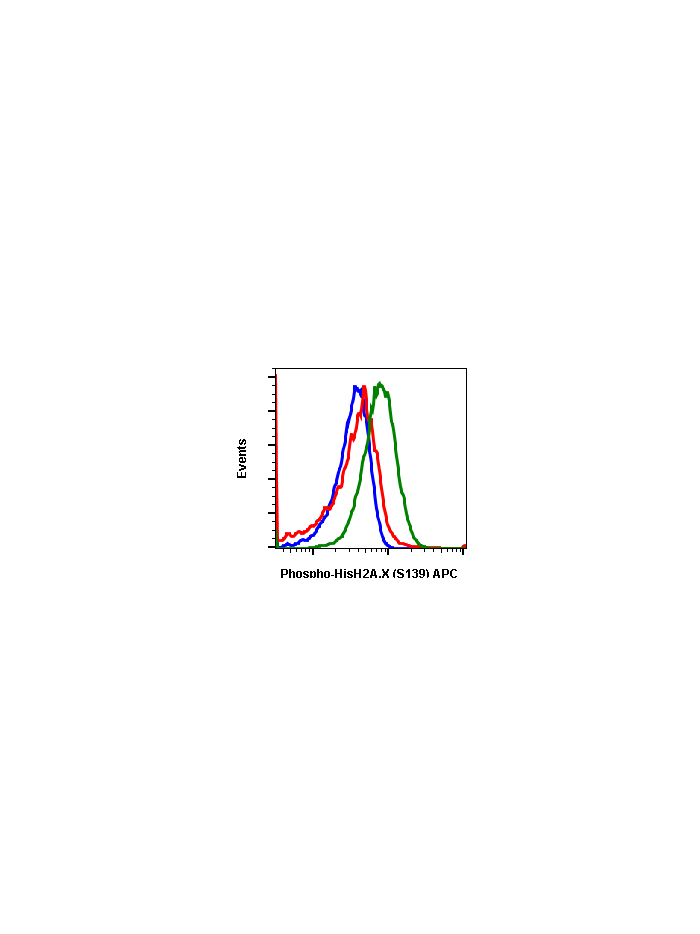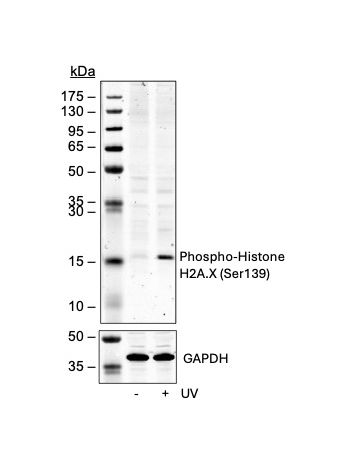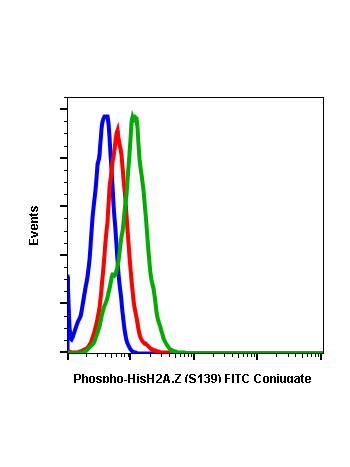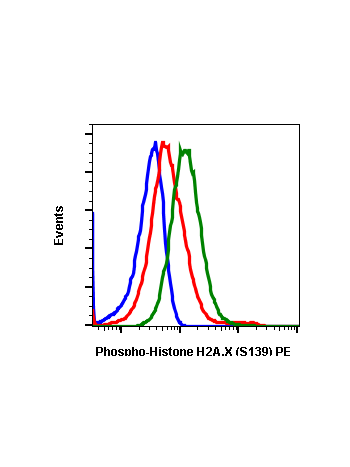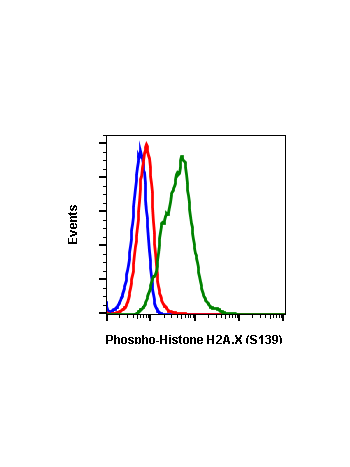Phospho-Histone H2A.X (Ser139) (1B3) rabbit mAb APC conjugate
From
$118.80
In stock
Only %1 left
SKU
2199
Histone H2AX is a variant of the nucleosome core histone H2A and is phosphorylated at Ser139 in response to DNA damage. Histone H2AX phosphorylation is considered a specific reporter of double-strand DNA breaks. The protein is also referred to as γH2AX when phosphorylated at Ser139. H2AX phosphorylation is especially strong in response to double-strand breaks formed during apoptosis. However, physiological phosphorylation of Histone H2AX occurs when double-strand DNA breaks are formed during meiosis and V(D)J recombination. A549 and DU145 cell lines have been found to have higher expression levels of phosphorylated Histone H2AX compared to Jurkat, MCF-7, or HL-60 cell lines.
| Applications | Flow Cytometry |
|---|---|
| Clone | HisH2AXS139-1B3 |
| Format | APC |
| Validated Reactivity | Human, Mouse |
| Cross Reactivity | Predicted to work with mouse, rat and other homologues. |
| Clonality | Monoclonal |
| Immunogen | A synthetic phospho-peptide corresponding to residues surrounding Ser139 of human phospho-histone H2A.X |
| Formulation | 1X PBS, 0.09% NaN3, 0.2% BSA |
| Isotype | Rabbit IgGk |
| Preparation | Protein A+G |
| Recommended Usage | For flow cytometric staining, the suggested use of this reagent is 5 µL per million cells or 5 µL per 100 µL of staining volume. It is recommended that the reagent be titrated for optimal performance for each application. |
| Storage | 2-8ºC |
| Pseudonyms | H2AFX, H2AX, γH2AX, gamma-H2AX |
| Uniprot ID | P16104 |
| References | Tanaka T, Halicka D, Huang X, et al. (2006) Cell Cycle. 5: 1940-1945. |
Write Your Own Review

